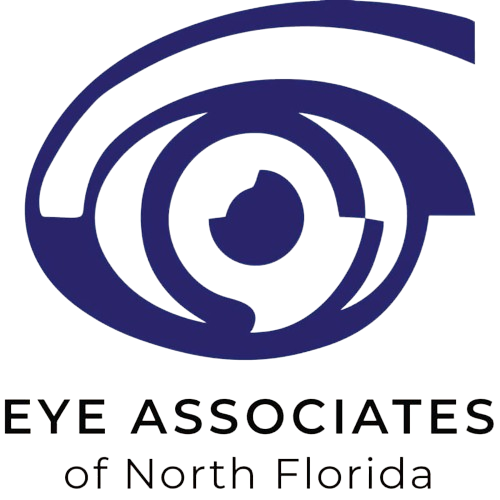Retina & Retina Diseases
In a camera, the front lens allows light to travel through to the film, creating a picture. Our eyes are very similar to a camera – light enters our eye through the cornea and lens, which then focuses on the retina and travels through the optic nerve and into the brain. This light-sensitive nerve tissue lines the very back of the eye and determines how images are viewed, making a healthy retina essential for good, quality vision.
The retina is attached to the vitreous – a gel-like substance that fills the eye to help it maintain its round shape. There are millions of fibers of the vitreous that are attached to the surface of the retina, allowing light to enter the retina.
As we get older, the retina can become damaged and weakened, while the vitreous begins to shrink and liquefy. Retinal disorders can affect your vision, and some may cause blindness if left untreated. The most common types of retinal disorders include:
- Macular degeneration, which slowly destroys central vision
- Diabetic retinopathy, which causes a build-up of fluid inside the eye due to an overabundance of sugar
- Retinal detachment, which materializes when the vitreous (the gel-like substance it is attached to) moves away from the retina, tearing it
- Macular hole, a small break in the center of the retina, known as the macula
- Posterior vitreous detachment, also known as floaters, are caused by the normal aging process where the vitreous gel begins to liquefy, causing the appearance of black spots or strings in your vision

Do you think you may be experiencing signs of retinal disease? Schedule your comprehensive, dilated eye exam with the trusted doctors at Eye Associates of Tallahassee!
Macular Degeneration Tallahassee, FL
What Is Macular Degeneration?

Age-related Macular Degeneration sometimes referred to as AMD, is one of the leading causes of age-related vision loss, with over 10 million Americans suffering from the incurable disease. Those with macular degeneration may not realize they even have the disease until they’ve lost a portion of their vision.
Macular degeneration occurs when the center part of the retina, known as the macula, begins to deteriorate/degenerate (hence, macular degeneration!) The macula is the part of the eye that compiles images from our vision and sends these images through the optic nerve up to the brain. With macular degeneration, the brain is unable to perceive these images correctly. When the macula deteriorates over time, you will begin to lose your central vision, and only be able to rely on your peripheral vision. There are two kinds of macular degeneration: dry and wet.
Dry Macular Degeneration
Dry macular degeneration is brought on by aging when the tissues of the macular begin thinning and deteriorating. Macular degeneration is characterized by a protein called drusen that develops under the retina. With the appearance of drusen, the macula becomes thinner and loses its ability to function as it should. In dry macular degeneration, vision loss is gradual, and may not be noticed at first. Dry macular degeneration has no treatment, but it may be beneficial to start a vitamin therapy regimen.
Wet Macular Degeneration
Although it is significantly less common than dry AMD, wet macular degeneration can cause a great deal of damage to your vision. Wet macular degeneration is more dangerous for vision because irregular blood vessels begin to grow under the retina. These blood vessels are called choroidal neovascularization (CNV) and grown under the choroid. As these irregular blood vessels grow, they may leak blood or fluid into the eye. This can then lead to blurred or distorted central vision.
Symptoms
As macular degeneration develops, your eyes slowly lose their central vision. This process happens over time and painlessly, making it difficult to self-diagnose. Early signs of macular degeneration include:
- A dark spot in the middle of your vision
- Shadowy or fuzzy areas in the middle of your vision
- Distortion in the middle of your vision (straight lines will appear bent)
Risk Factors
Researchers have found that those with the following lifestyles and traits have a higher chance of developing macular degeneration:
- Lack of exercise & obesity
- Hypertension (high blood pressure)
- Age (over the age of 60)
- Smoking
Prevention & Treatment Options
Unfortunately, there is no cure for wet or dry macular degeneration. However, there are steps that you can take to slow the progression of the disease, including regular exercising, starting a healthy diet, avoiding smoking, and properly protecting your eyes from ultraviolet light. If you see signs of AMD, schedule your comprehensive eye exam with us immediately! Not only will your eye doctor perform a thorough exam to ensure overall eye health, but he or she will check for any warning signs of eye conditions including AMD. An eye exam with Eye Associates of Tallahassee could save your vision!
Eye Associates of Tallahassee also offers MacularProtect Complete® which is an all-in-one formula that provides support for macular & whole body health.
If you live in Tallahassee and are concerned that you may have macular degeneration, or you would like to learn more about the disease and treatment options, please schedule a consultation with one of our doctors at Eye Care Specialists of Tallahassee.
Diabetic Retinopathy Tallahassee, FL
Did you know that over 29 million Americans – over 9% of our total population – have diabetes? Those who suffer from this disease are aware of the numerous complications and conditions that can arise once diagnosed. Diabetes can affect your blood pressure, kidneys, heart rate, and, yes, your eyes.
Diabetic retinopathy is the most common diabetic eye disease. Diabetic retinopathy occurs when the body’s glucose levels increase, causing fluid to accumulate in the lens of your eye. Diabetic retinopathy can lead to a gradual loss of sight, resulting in blindness if left untreated.

Types Of Diabetic Retinopathy
Diabetic retinopathy can be entirely preventable if your diabetes is kept under control. There are two types of diabetic retinopathy: non-proliferative diabetic retinopathy (NPDR) and proliferative diabetic retinopathy (PDR).
Non-proliferative diabetic retinopathy is considered the earliest stage of diabetic retinopathy and often has very few visual symptoms. During this stage, the blood vessels in the retina begin to weaken, causing the vessels to develop tiny bulges called microaneurysms. These microaneurysms end up leaking fluid into the retina, in turn making the macula damaged and swelled.
In proliferative diabetic retinopathy, the disease has progressed and is more advanced. Proliferative diabetic retinopathy is the stage in which the retina becomes deprived of oxygen. The blood vessels in the retina close, preventing blood flow. The retina will attempt to grow new blood vessels, which tend to be weak and can leak blood into the vitreous – the gel-like substance that fills the space between the lens and the retina. This leakage can cause floaters or clouded vision.
Symptoms Of Diabetic Retinopathy
Though the early stages of this condition present no visual symptoms, you may experience these symptoms as diabetic retinopathy progresses:
- Spots or floaters
- Blurred, hazy vision
- Fluctuating vision
- Dark or empty areas in your vision
- Pressure within the eye
- Partial vision loss
Treatment
Treatment of diabetic retinopathy depends on what stage of the disease a patient may be in. Regular monitoring is usually the only treatment option when the disease is in the non-proliferative stages, along with following a healthy diet and regular exercise. These simple fixes can be enough to control blood sugar levels, which can lead to a slower progression of diabetic retinopathy.
When diabetic retinopathy has progressed to an advanced stage, a laser treatment called photocoagulation may be necessary if macular edema has occurred. Photocoagulation uses a laser beam with light to generate small burns on the retina of the eye. These small burns are created with the hope of sealing up any leaks that may have opened in the retina.
Diabetic Retinopathy & Glaucoma
When new blood vessels are growing during proliferative diabetic retinopathy, they raise eye pressure, which leads to damage of the optic nerve. If the condition continues to be left untreated, this advanced stage can lead to glaucoma. Glaucoma can affect the eye’s optic nerve and is caused by elevated eye pressure combined with poor circulation of the fluid in the retina. The blockage of blood flow that commonly develops during proliferative diabetic retinopathy is what eventually causes glaucoma. Glaucoma is commonly referred to as “the silent thief of sight” by the way it presents no symptoms until it’s too late.
Prevention
Maintaining glucose levels and normal blood pressure is crucial to one’s health, as it slows both the onset and progression of diabetic retinopathy. When dealing with diabetes, a yearly comprehensive eye exam is recommended. The symptoms of diabetic retinopathy are not visual, making a yearly (dilated) eye exam with us crucial for those with diabetes.
Easy ways to prevent retinopathy include controlling high blood pressure, sticking to a healthy diet, exercising regularly, and taking all prescribed medications.
If you’re a patient with diabetes in Tallahassee or Perry and you’re concerned about developing diabetic retinopathy, please make an appointment for a consultation with one of our specialists. When caught early, diabetic retinopathy can be treated, saving your vision. At Eye Associates of Tallahassee, we’re here for you, every step of the way!







